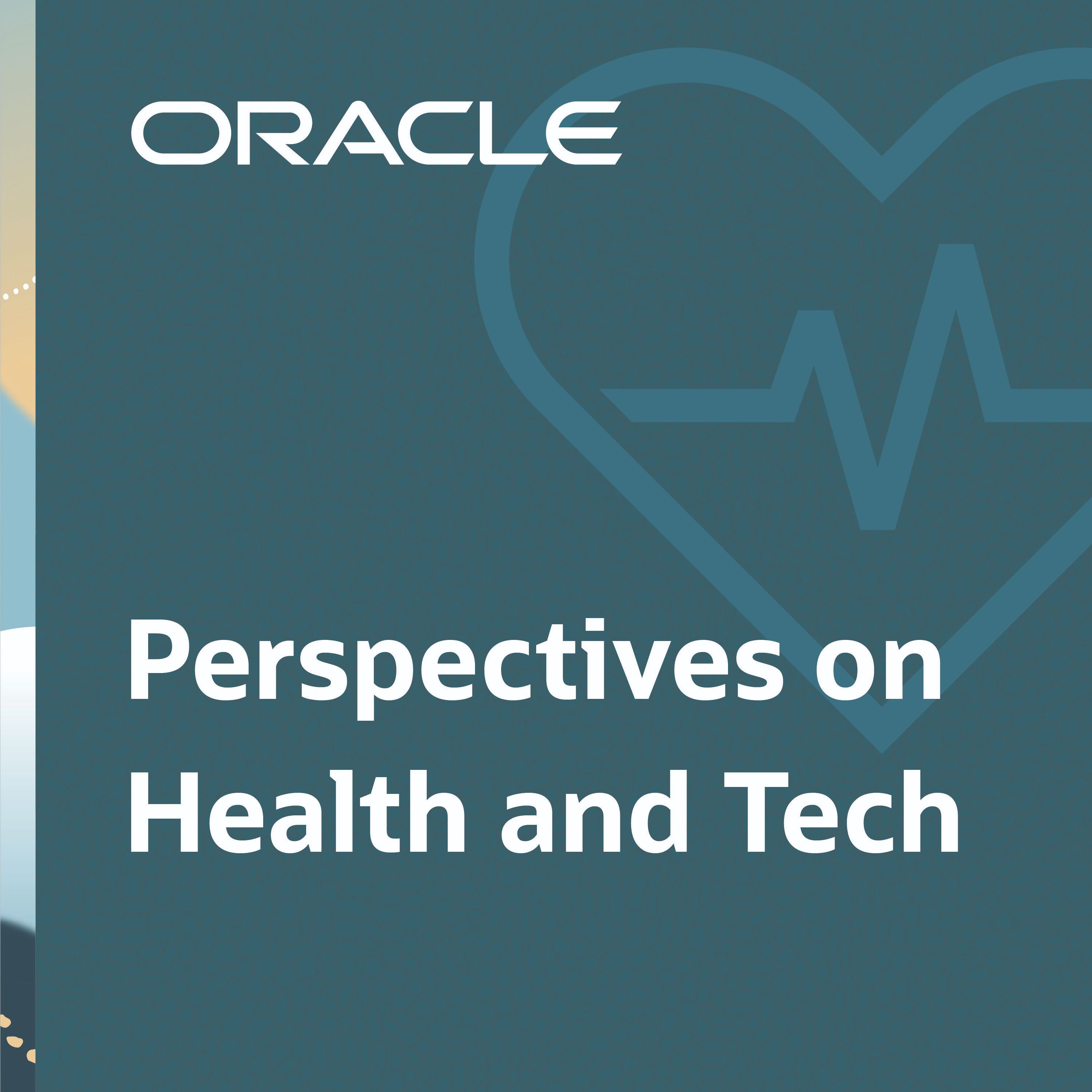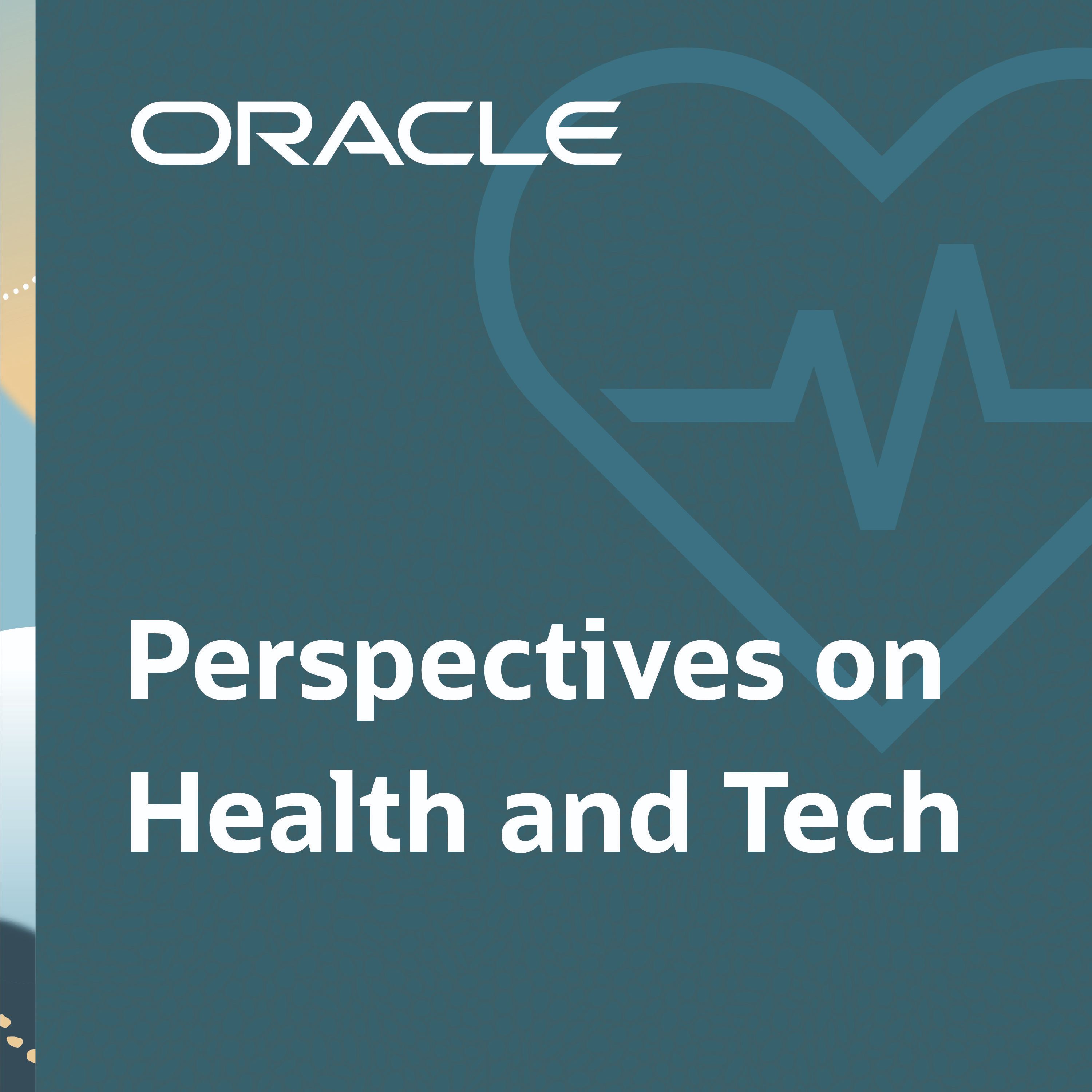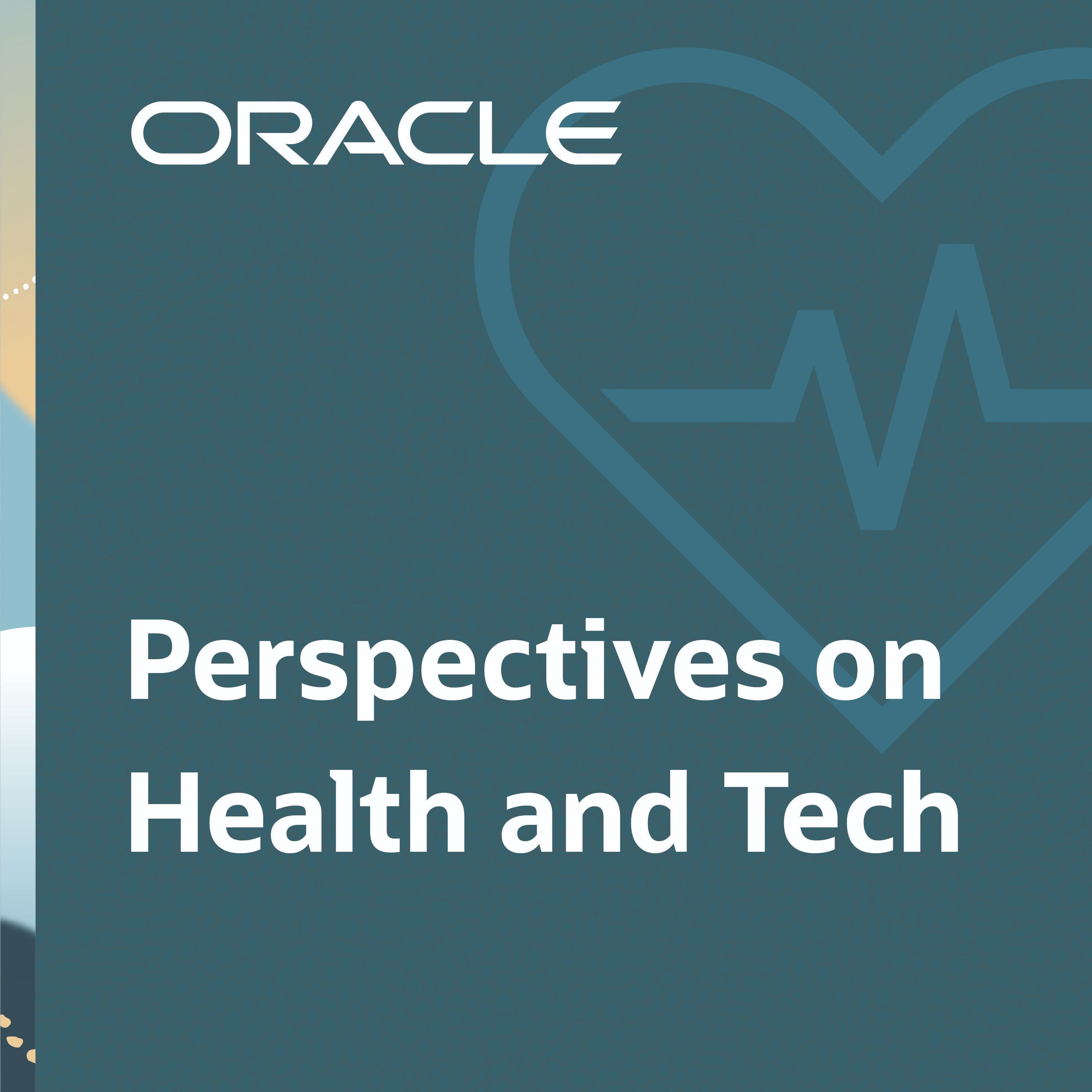Changing the Narrative: How Data and Technology Can Save Lives
Description
-----------------------------------------------------------
Episode Transcript:
Welcome to Perspectives on Health and Tech podcast. Brought to you by Oracle Health. In this series, we have conversations on creating a seamless and connected health care world where everyone thrives. Let's get started.
Welcome to Perspectives on Health and Tech. Thank you for joining us. I'm Danny Gladden, general manager of behavioral health and social care at Oracle Health. I'm also a licensed clinical social worker, and I've spent my career working in suicide prevention from crisis lines to community mental health to supporting national efforts with the Department of Defense and the VA. For me, the work is personal and lifelong. At Oracle Health, we believe technology has a role to play in ending suicide with one of the largest global electronic health record footprints and long standing partnerships with the VA and the DoD. We see the impact that suicide has across every community we serve. This isn't an issue that only affects certain families or certain health system. It impacts all of us. That's why we're speaking out as a technology company. Because suicide prevention is not only about crisis intervention, it's about building systems that connect people to help earlier equip clinicians with the right tools and make sure that no one falls to the cracks. Our responsibility is to use data design and technology in ways that honor the human side of care, while supporting providers who are on the frontlines every day. And today, I'm honored to be joined by Doctor Keita Franklin, chief of behavioral health at Leidos, one of the nation's foremost experts in suicide prevention, who's led this work at the highest levels of government and continues to advance the field through research, policy and practice. And so, Keita, it's so good to be with you today. I'm so glad you've joined us. You and I have had a chance to do some pretty incredible work together. You have, spent much of your career leading national suicide prevention efforts with the VA, the DoD, the Columbia Lighthouse project. How has that experience shaped your perspective on the urgency of this issue?
Keita Franklin 02:26 - 03:44
Thank you so much for having me, Danny. And I always love our work together and our connection as social workers in the field over the years, so I truly appreciate the chance to talk to you this morning. You know, one of the first things that comes to mind for me is just a basic, sort of lesson is just the complexities around suicide. Now, I don't think people know, you know, when somebody dies by suicide, there is a lot of variables and factors at play. And it's never it's never one reason. But like you'll hear about people that struggle with a host of reasons, some of which are medically oriented and pain management oriented and complexities around TBI, and some of them are mental health related, and some of them are things that you and I always talk about related to social determinants of health. So just the complexities, that's probably one of my biggest sort of things to think about. And sure, in terms of shaping my perspective. And then I appreciate the upstream. I'm definitely an upstream sort of thinker in terms of like, how do we get, you know, the military used to call this left of boom, but like, how do we get, away from just intervening at the time at the single point in time of crisis? I don't know if you saw the CDC and the National Action Alliance just pushed out this new upstream toolkit or guide this week. I have that on my list of things to look at.
Danny Gladden 03:45- 04:15
Yeah, it's really great, isn't it, to have, more folks in across health care and beyond talking about suicide, suicide prevention now. So Oracle, we're a technology company. We believe we have a part to play in the bigger ecosystem of suicide prevention. If you think about a company like Oracle and Oracle Health, you know, why is it important for a company like ours to be part of this conversation?
Keita Franklin 04:15 - 05:34
Well, for a couple different reasons. And I'm in the same boat. You know, Leidos is also a technology company, and we're so thrilled for our partnership with you all around some of these issues. But really, a couple of things that we know about suicide is at the center of a public health approach is just the importance of data. Like data drives the entire public health approach. And whether you're like a brand new suicide prevention coordinator on the ground in a local county, or whether you're tackling suicide at the National level, you have to have your hands on a good set of data. And I know that you are all about data, as is Oracle at large. But then also what do we do with the data and how do we bring more technology tools to the fight when it comes to preventing suicide. By using good data, not only in mental health care systems as flags and as you know, part of predictive analytics. But also, I think we're seeing on the horizon more AI tools and advanced ways to bring self-help tools with clinician oversight. Maybe we'll talk about that more in the podcast. But definitely there is a role for technology. And I've always over the years I've put it in the pilot bucket. When you're doing good public health programing, you always have four or 5 or 6 pilots going where you're testing new interventions, trying to advance the needle with new and innovative treatments and the like. And I think technology fits in there.
Danny Gladden 05:35 - 07:22
Well, I feel a burden, a healthy burden. If we think about, say, behavioral health technology companies, of course, they're the users of their tech, kind of have a responsibility to ensure they account for suicide prevention and screening and whatnot. As an enterprise health care EHR, that service primary care, chronic conditions and an emergency department in med surge and oncology, we have to be really diligent about where we can also infuse best practices for screening across health care delivery system. And I feel sort of, a burden there to make sure we get that right, have the right questions and the right workflows in the right place so that we can, help a doctor who's treating someone with heart disease also be able to talk about the stresses of heart disease and, risk suicide risk that comes from living with a chronic illness. And so that takes me kind of, you know, this year's World Suicide Prevention theme is changing the narrative on suicide. I'm just curious, what does that mean to you? Changing the narrative. It really struck me. I want to hear your perspective and also talk about. I think you've got some really interesting things happening in your career. So, like changing the narrative on suicide. What about small acts of kindness and community engagement and connection? How can that make a difference?
Keita Franklin 07:23 - 10:22
No. I so appreciate your question. And also the work that you're doing to embed suicide prevention into like a whole of health care system. So first and foremost, like the, early on in my career, I learned the importance of, like, if we just screen or if we just wait for mental health care alone. You know, we will have missed about many. You know, I learned this at the VA front and center where they, the veterans would go in for headaches and backaches and all of these other types of physical care issues. And when they're doing that, if we don't screen them and we don't engage around suicide prevention, it's a missed opportunity. And it's awful when we see it in the fatality reports after the fact that perhaps they've been to one of our primary care clinics in the days leading up to their death. It's just incredibly tragic for our system to, like, miss any single opportunity to say, disable that. So I'm so pleased that you're doing that. And it is hard work. Right. Because the docs will tell you, I'm busy with this, I'm busy with this, and I have a lot of things to balance. And, you know, they're here for their podiatry appointment. What do you mean? I have to screen, but you just don't know what's going on for people. So that's one thing. And then, I, I think you and I both love the theme, like changing the narrative on suicide. Right? I mean, part of the narrative is that it's upstream. The other small piece that resonates with me about changing the narrative. I'm curious what you think about this as well. Is the focus on lived experience like, I absolutely love for us as a field to never forget the voice of those that have this lived experience, whether you know it's a mom or dad that have lost a loved one, a child to suicide









